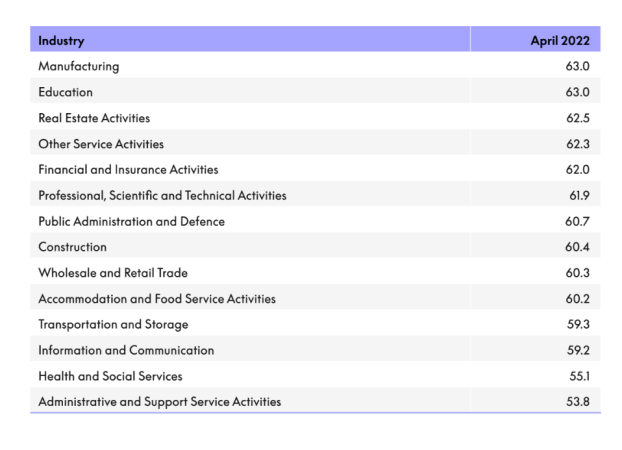share on
The survey of 1,000 local residents found those in manufacturing and education are facing the most mental health distress, while those in administrative & support service activities are coping better than most.
A recent Singapore Mental Health Index by LifeWorks found that almost 40% of working Singaporeans are experiencing significant mental health strain and are considered high risk in terms of their mental health. The index collated data from 1,000 Singaporeans across the city-state to provide an insight into the mental health of local residents across a wide range of demographics and locations.
As a whole, 39% of Singaporeans have a high mental health risk, 46% have a moderate mental health risk, and 14% have a low mental health risk.
Factors attributed to the high mental strain experienced by Singaporeans according to the report include the COVID pandemic — 51% indicate the pandemic has had a negative impact on their mental health, with this group having a mental health score five points below the national average. Global geopolitical uncertainty such as the war in Ukraine played an important part, with 34% reporting that the conflict in Ukraine is negatively impacting them. Particularly, 41% are most concerned about the economic impact of the conflict in Ukraine.
At the same time, respondents were noted to experience low mental health scores due to workplace stress, with those without emergency savings having the lowest mental health scores.
It was also found that gender and where workers live impacts their mental health scores. While all regions in Singapore have mental health scores in the strained range, this was most notable in the North region with a score of 58.4. In terms of gender, women had a slightly lower mental health score than men.
The study also took a look at mental health by industry. The lowest mental health score in April 2022 is among individuals employed in administrative and support service activities (53.8), followed by those working in health and social services (55.1), and information and communication (59.2). Conversely, those employed in manufacturing (63.0), education (63.0), and real estate activities (62.5) have the highest mental health scores.

By employer size, those with 501-1,000 employees had the lowest score at 57.4, while those with 1,001-5,000 employees had the highest (62.5). By household income, those earning S$50,000/annum had the lowest score (56.2). On the other end, those earning S$200,000 and over had the highest score at 67.6.
In tandem with the mental health strain, 57% are feeling more sensitive to stress compared to before the pandemic. Particularly, younger employees below the age of 40 are 70% more likely to feel more sensitive to stress compared to before the pandemic. The lowest sub-score is for the risk measure of anxiety (51.3), followed by:
- Work productivity (52.0)
- Isolation (53.8)
- Depression (54.9)
- Optimism (64.1)
- General psychological health (69.7)
The financial risk sub-score, a measure of the level of emergency savings, is the most favourable mental health sub-score (69.8).
Facing such struggles, 50% of respondents are likely to reach out for professional help — this group has a mental health score more than two points higher than the national average. At the same time, there were still 21% who are unlikely to reach out for professional help, and this group has a mental health score nearly two points lower than the national average.
Jamie MacLennan, Senior Vice-President and Managing Director, Asia-Pacific at LifeWorks, commented: “It is not surprising that a significant majority suffer from mental health strain, considering the impact of the ongoing pandemic as well as other external factors such as the conflict in Ukraine. What is encouraging to see is that more Singaporeans are willing to seek professional help for mental health strain but we still have a long way to go in this respect."
Image / Singapore Mental Health Index
Follow us on Telegram @humanresourcesonline or click here for all the latest weekly HR and manpower news from around the region!
share on
Follow us on Telegram and on Instagram @humanresourcesonline for all the latest HR and manpower news from around the region!
Related topics


